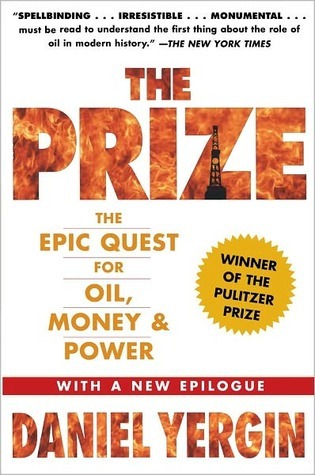More on this book
Community
Kindle Notes & Highlights
“Without petroleum the Marshall Plan could not have functioned,” said a U.S. government report at the time.
The dollar drain led to a bitter argument as to how much “dollar oil” (from American companies) and how much “sterling oil” (from British companies) would come into the United Kingdom and the rest of Europe.
Tapline. It was finished in September 1950. Two more months were required to fill the line, and in November, the oil began to arrive at Sidon in Lebanon, the terminus on the Mediterranean,
By 1950, the interstate movement of natural gas reached 2.5 trillion cubic feet—almost two and a half times the level of 1946. Without the additional natural gas use, American oil demand would have been seven hundred thousand barrels per day higher.
“Generation of ’28”—students at the Universidad Central in Caracas who had rebelled against Gómez in 1928. They had failed then,
Aminoil won the Neutral Zone concession from Kuwait with a bid that stunned the industry: $7.5 million in cash, a minimum annual royalty of $625,000, 15 percent of the profits—and a million dollar yacht for the Amir of Kuwait.
within eight years of winning the concession, an oil man named Jean Paul Getty, or J. Paul Getty as he called himself, would become the richest man in America.
Mossadegh’s objective was “not better financial terms but to get rid of this foreign company with its predominating influence out of Persia.” And Mossadegh had no intention of allowing Anglo-Iranian back. Moreover, he was now the prisoner of the popular passions he had done so much to stir.
By 1952, Iranian production had plummeted to just 20,000 barrels per day, compared to 666,000 in 1950, while total world production had risen from 10.9 million barrels per day in 1950 to 13.0 million in 1952—an increase more than three times greater than Iran’s total output in
Acquiescence in Iran—and Mossadegh’s ability to act with impunity—would inevitably and irresistibly tempt countries all over the world, leading to an epidemic of nationalization and expropriation. Britain could not afford risking the rest of its foreign assets.
“He who pays the fiddler gets to invite the guests to the ball,”
alarm about Nasser began to mount not only in London but also in Washington in the autumn of 1955, when it was learned the Egyptian dictator had turned to the Soviet bloc for weapons.
The Oil Lift was complemented by rationing and other demand-restraint measures. Belgium banned private driving on Sundays. France limited sales by oil companies to 70 percent of pre-Suez levels. Britain slapped new taxes on oil, which resulted in higher gasoline and fuel oil prices and led to a hike in London taxi fares that became immortalized as the “Suez sixpence.”
Years later, the Times of London said of Anthony Eden, “He was the last prime minister to believe Britain was a great power and the first to confront a crisis which proved she was not.” It was as much an epitaph for an empire and a state of mind as for a
To encourage exploration and development, the Libyan Petroleum Law of 1955 provided for a host of much smaller concessions, instead of the very large concession areas characteristic of the Persian Gulf countries. “I did not want Libya to begin as Iraq or as Saudi Arabia or as Kuwait,” explained the Libyan petroleum minister who oversaw the law. “I didn’t want my country to be in the hands of one oil company.
in 1957, seventeen companies successfully bid for a total of eighty-four concessions.
There were no telephones to the outside world. Those wanting to make an overseas call to the United States had to fly to Rome to do it.
an estimated three million land mines left over from World War II. Geologists and oil field workers were not infrequently injured or killed by undetected mines. The companies formed mine detection and clearance squads, and in due course, some of the Germans who had laid the mines for General Rommel were recruited to remove them.


